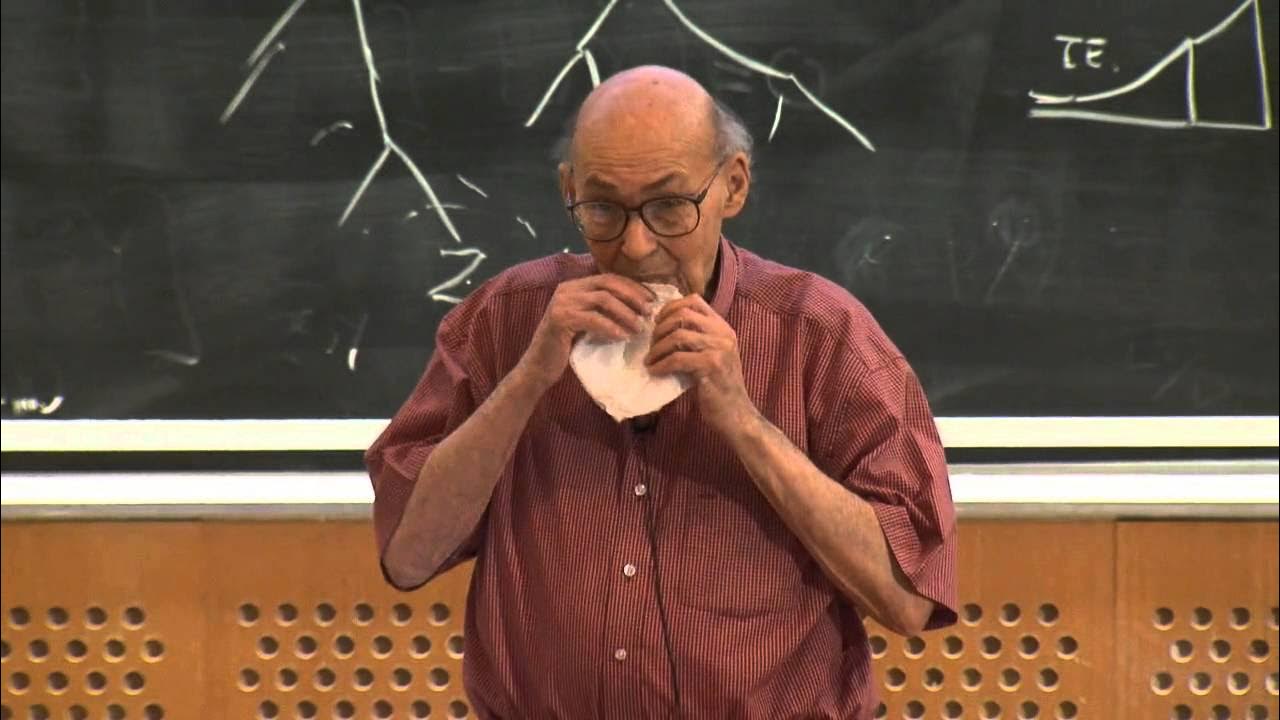2. Falling In Love
Summary
TLDR在这段视频中,马文·明斯基教授就心理学和人工智能的多个方面进行了深入探讨。他首先讨论了关于“自我”的概念,指出人们倾向于相信思考行为是由身体内部的某种实体完成的,并批判了这一普遍观念。明斯基教授还提到了他对情感和思维方式的词汇量感到好奇,并探索了心理学的发展历程,特别是认知心理学的兴起。他批评了行为主义者简化的心理学模型,并强调了心理学的多样性和复杂性。此外,明斯基还探讨了人工智能的发展,特别是他与西摩·帕珀特共同提出的“心智社会”理论,该理论认为大脑由许多不同的“代理”或“资源”组成。最后,他提出了关于意识和自由意志的哲学问题,并质疑了当前心理学研究的方法,特别是对统计方法的过度依赖。整个讲座贯穿了明斯基对心理学和人工智能领域的深刻见解和挑战性思考。
Takeaways
- 📚 马文·明斯基讨论了心理学和认知科学的发展,强调了对心理现象的多种解释和理论的重要性。
- 🧠 他提出了“心智社会”理论,认为大脑中有多个不同的处理过程或“代理”,它们共同工作形成了复杂的思维和情感。
- 🤔 明斯基对意识和自由意志的概念持怀疑态度,认为这些更多是法律和社会概念,而非物理现象。
- 📈 他批评了行为主义者简化心理学的尝试,认为这限制了心理学的发展,并倡导采用更复杂的知识表示方法。
- 📉 明斯基讨论了科学和心理学的历史,包括为什么科学在某个时期内消失,以及为什么心理学直到20世纪才取得显著进展。
- 📚 他提到了亚里士多德关于心智和情感的理论,认为它们是心理学早期的杰出理论。
- 🤓 明斯基分享了他对科学和创造性思维的看法,鼓励人们追求并分享他们最好的想法。
- 🌐 他讨论了互联网对社会思考方式的潜在影响,包括信息共享的便捷性和群体决策的风险。
- 🤖 关于人工智能的未来,明斯基认为AI领域需要更好的知识表示方法,而不仅仅是逻辑和统计技术。
- 📝 他建议心理学家应该从统计学的泥潭中走出来,更好地理解知识表示的复杂性。
- 🌟 明斯基强调了跨学科合作的重要性,认为心理学、认知科学和人工智能可以相互启发和促进。
Q & A
MIT开放式课程是如何获得资金支持的?
-MIT开放式课程通过捐赠获得资金支持。在视频中提到,观众可以通过访问ocw.mit.edu来捐款或查看来自数百个MIT课程的额外材料。
Marvin Minsky在讲座中提到了哪些关于心智理解的流行观点?
-Marvin Minsky在讲座中提到,大多数人认为他们不是自己思考的主体,而是他们内部的某个东西在思考。这个观点是关于自我(self)的概念,它嵌入在我们几乎所有的言语和思考中。
Marvin Minsky对于宗教中灵魂或自我的看法是什么?
-Marvin Minsky认为,宗教可能利用了关于灵魂或自我的概念,这种观点认为在人复杂的内部存在一个纯净的本质,称为灵魂或自我,这在物理术语中是无法描述或解释的,这是导致人们认为存在两个世界——物理世界和许多其他类型世界的原因之一。
Marvin Minsky认为心理学作为一门科学为何在历史上消失过一段时间?
-Marvin Minsky提出,心理学作为一门科学的消失可能与大宗教的兴起有关。他询问为什么科学消失了1000年,并且为什么它又回来了,暗示这可能与宗教的影响和后来科学复兴有关。
Marvin Minsky对于弗洛伊德的批评有何看法?
-Marvin Minsky提到,弗洛伊德受到了批评,有人认为他是一个彻底的骗子,从未治愈过一个病人。然而,Minsky认为弗洛伊德从未真正声称治愈过病人,而是提出精神分析可能是了解你真正想法和发现更多关于自己和你的目标的好方法。
Marvin Minsky对于动物的心理学有何见解?
-Marvin Minsky提到了Konrad Lorenz和Niko Tinbergen的工作,他们通过观察动物的行为来分析它们。他认为,就像人类一样,当动物表现出愤怒时,我们并不是在描述它们的心理状态,而是在描述它们的行为,因此动物行为学家也是心理学家。
Marvin Minsky对于心理学中的'行为主义'有何看法?
-Marvin Minsky批评了行为主义者试图简化情况以找到行为的基本规律的方法。他认为这种方法忽略了心理学的丰富性和复杂性,而且他怀疑是否存在类似牛顿定律或麦克斯韦方程式的心智规律。
Marvin Minsky如何描述心理学的发展历程?
-Marvin Minsky描述了心理学从古希腊时期到20世纪的发展,特别提到了亚里士多德、斯宾诺莎、康德、洛克、休谟,以及后来的弗朗西斯·高尔顿和威廉·詹姆斯。他指出,直到20世纪末,心理学才作为一门科学真正开始发展。
Marvin Minsky对于意识的看法是什么?
-Marvin Minsky认为意识是一个词源学上的意外,人们用它来指代所有他们不理解的心理方面。他提出,意识这个词在文化中传播开来,但它实际上可能只是一个法律概念,用于区分行为是故意的还是意外的。
Marvin Minsky如何看待人工智能的发展?
-Marvin Minsky在视频中提到了他在1950年代末关于神经网络理论的工作,并且他是人工智能领域的先驱之一。他与Seymour Papert共同发展了关于心智的理论,认为大脑是由许多不同的进程或代理组成的,这些代理共同工作以产生智能行为。
Marvin Minsky对于心理学的未来有什么建议?
-Marvin Minsky建议心理学家应该从统计学的泥潭中走出来,关注知识的复杂表示。他认为,逻辑和一阶逻辑并不能满足心理学的需求,因为它们不能进行类比,而且过于依赖0或1的二元判断。
Outlines

This section is available to paid users only. Please upgrade to access this part.
Upgrade NowMindmap

This section is available to paid users only. Please upgrade to access this part.
Upgrade NowKeywords

This section is available to paid users only. Please upgrade to access this part.
Upgrade NowHighlights

This section is available to paid users only. Please upgrade to access this part.
Upgrade NowTranscripts

This section is available to paid users only. Please upgrade to access this part.
Upgrade Now5.0 / 5 (0 votes)






